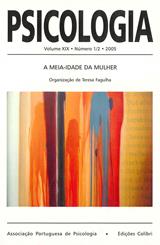Empirical Test of a Model on the Relations between the Value Systems and the Democratic Attitudes
DOI:
https://doi.org/10.17575/rpsicol.v19i1/2.404Keywords:
-Abstract
The instability of Latin American countries’ democracy has been attributed to the tension between typical values of the non-democratic and democratic regimes. However, few studies analyse the simultaneous relations between the set of value systems and people’s democratic attitudes. This study examines the goodness of fit of a model on these relations. The model was tested on a survey (N = 300) on which were applied the Questionnaire for Psychosocial Values and the Scale of Attitudes towards Democracy. The results of a structural equations model show an organization of values into four systems: post-materialist; religious; hedonist; materialist. Furthermore, the results also indicate that the adhesion to materialist system predicts a negative attitude toward democracy and the adhesion to pos-materialist values predicts a negative one. The discussion focuses on the comparison between these results and those obtained in previous studies.


